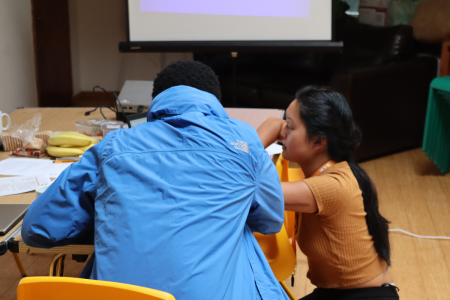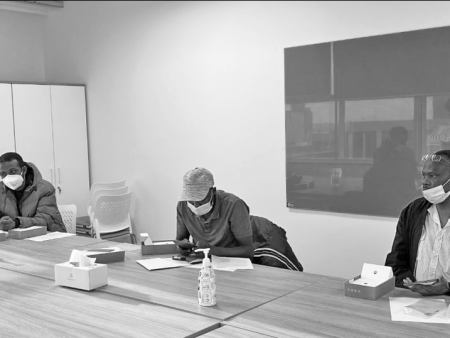Building a shared vision for refugee integration
With unprecedented numbers of refugees entering the region, further austerity measures, and the Brexit vote, the past two years have seen a great deal of upheaval. Meanwhile, skills gaps are an increasing concern across several areas of the UK labour market, as employers report that they are not reaching enough skilled candidates.
Despite this, an opportunity is being overlooked. Research has shown that the skills and talents of refugees are often underutilised, and many work in areas for which they are overqualified. Given the right opportunities, refugees represent valuable assets to businesses and communities, and the full abilities of these individuals can, and should, be realised.
ACH’s vision for the long-term outcomes of our work outlines several benefits of fulfilling this potential:
- Refugees entering and progressing in sustainable careers, which allow them to support their families, integrate in the UK, and thrive
- Skills gaps filled across the country, allowing businesses and communities to flourish
- Increased diversity in businesses across higher level roles, which will benefit those businesses and help to build a more equal society
- Government money saved by increasing employment and helping people to sustain themselves
This is achievable, but not by one group acting alone.
Across the country, hundreds of organisations are making great efforts to support and integrate refugees, from assistance with resettlement and accommodation, to training and employment, to social activities.
At the same time, key players in community development and in business are becoming more aware, and more interested in the opportunity that the refugee population represents for the UK.
We are in a great position now to revolutionise the way we approach refugee resettlement, but first, we need to unify those efforts. In order to face such a complex social challenge, the influence and expertise of a wide range of organisations needs to be brought together in a cross-sector, collective impact approach.
This is not just a case of working on the same social issues, but of creating a focused, unified approach that identifies the root causes of the issue, and meets structured goals. It requires the cultivation of a culture in which change can be made, and in which several members of the community play a part. This includes the refugee communities we are working with, as well as organisations or individuals with relevant experience and knowledge.
With input from various perspectives, we can take a fully informed approach to resettling and integrating refugees, and to making society more inclusive.
To find out how you can get involved, or for more information, contact richard.thickpenny@ach.org.uk


